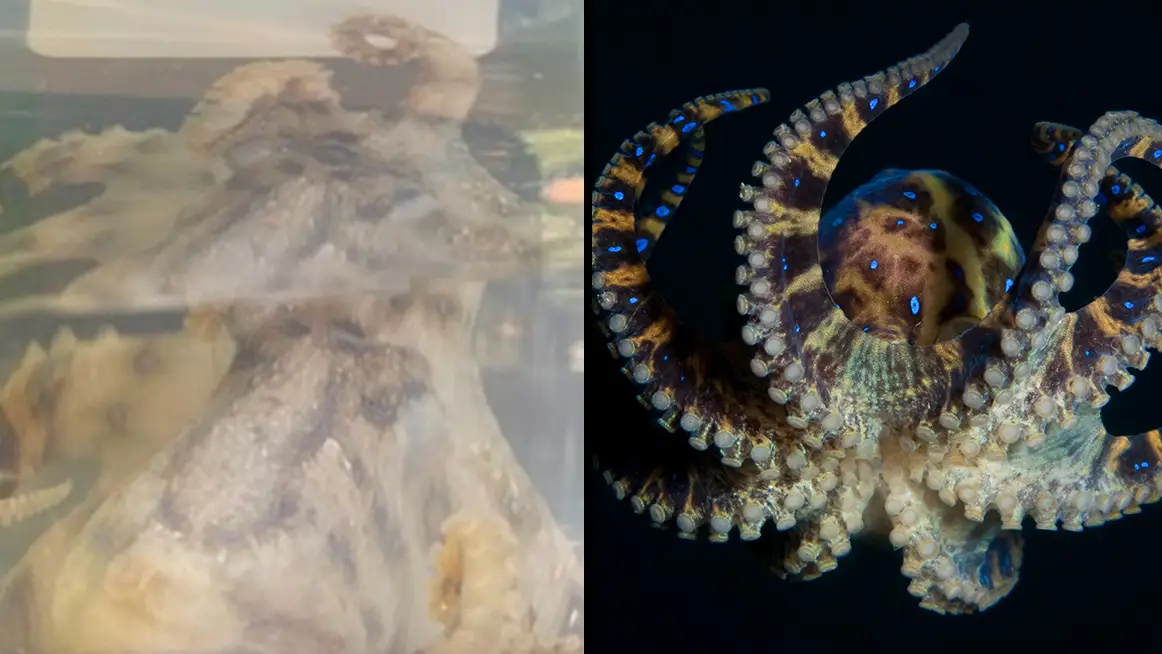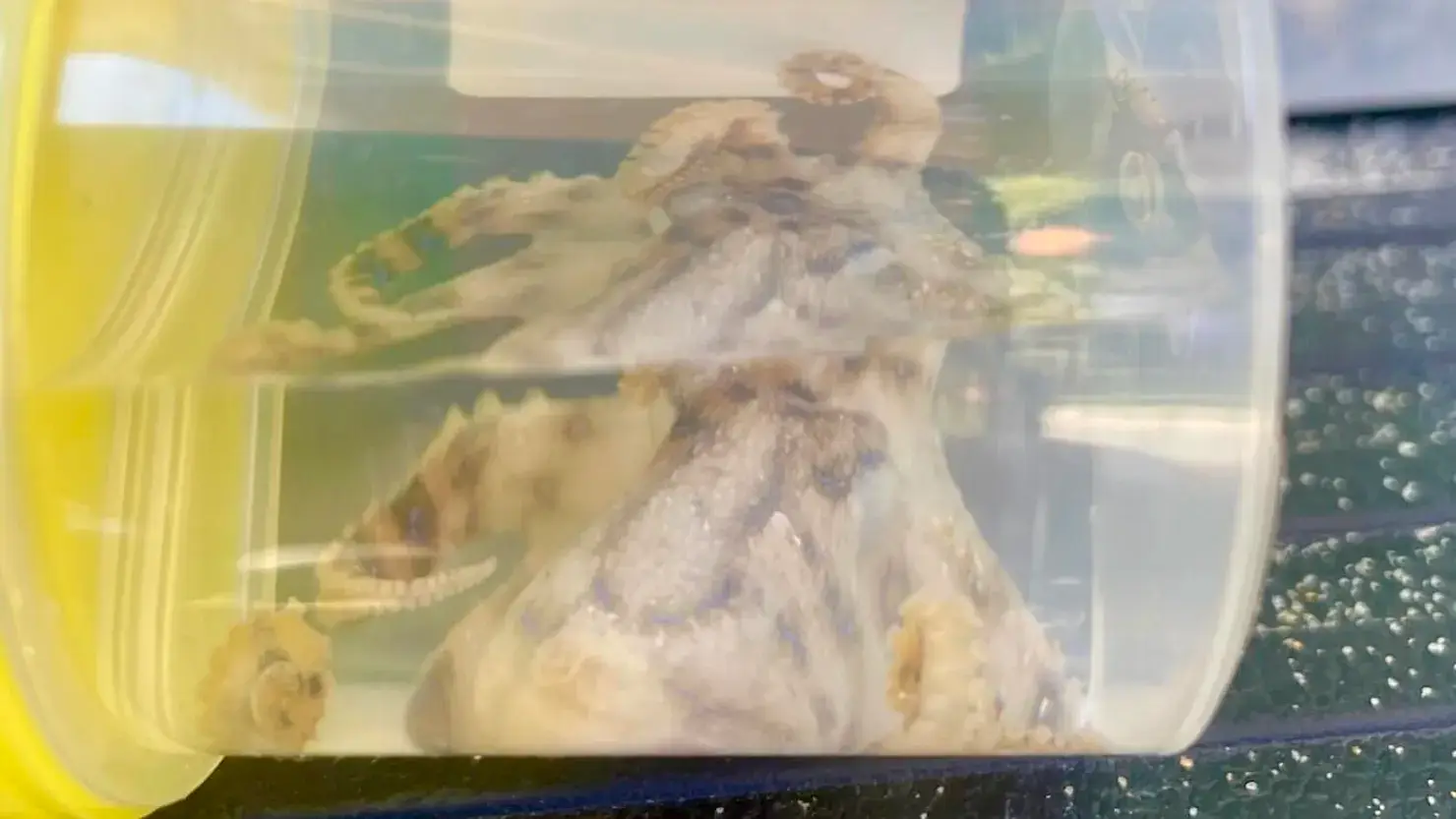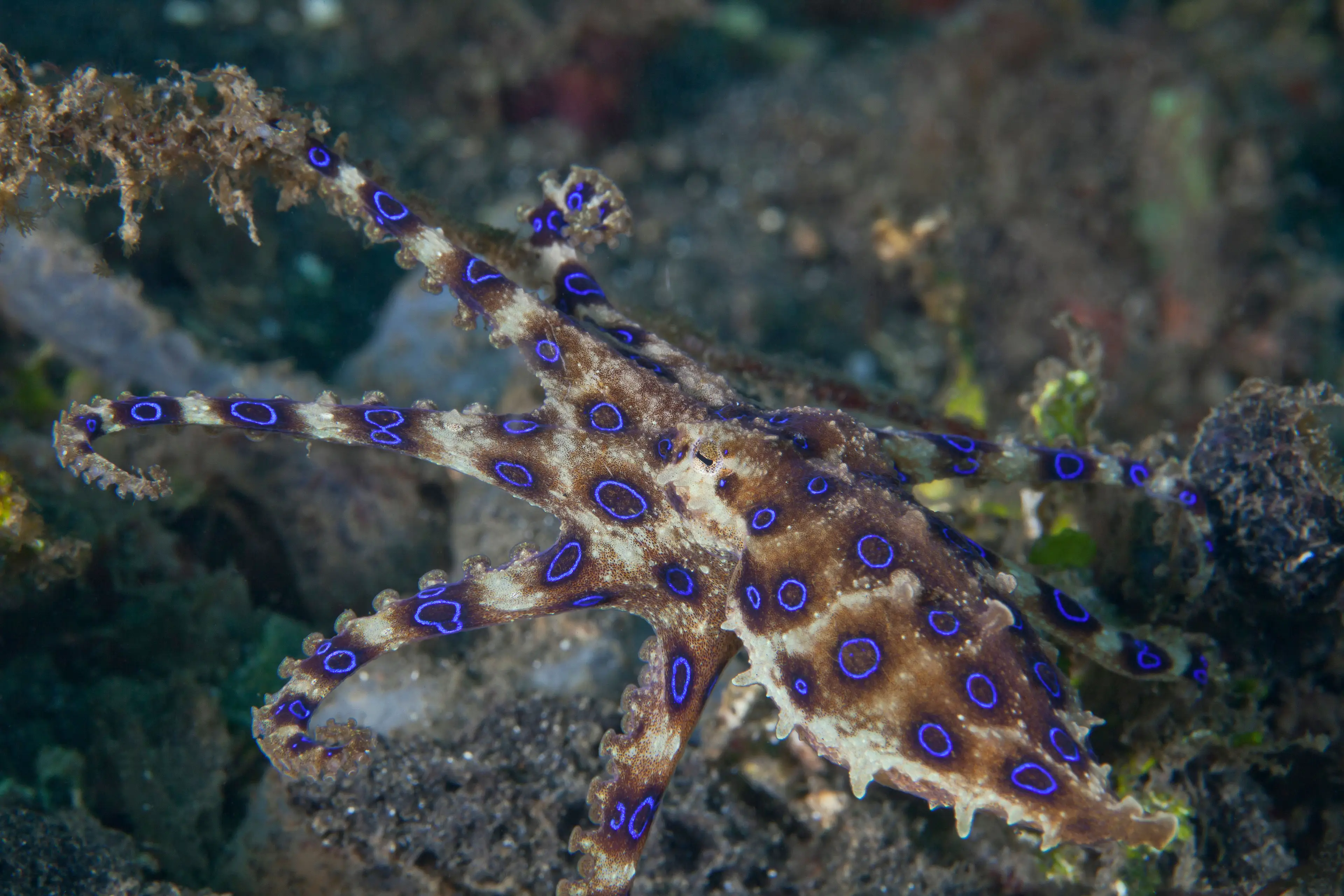
One woman has suffered multiple bites from a deadly blue-ringed octopus whilst out on a swim this afternoon (16 March).
A bite from this 'extremely venomous' octopus holds venom that is strong enough to kill 20 people.
The woman was swimming in the sea when she unknowingly picked up a shell containing the deadly blue-ringed octopus, which subsequently fell out and bit her two times on the stomach.
Advert
Paramedics were then called to the scene at 2.45pm on Chinamans Beach in Mosman, after the woman said that she was suffering from abdominal pain in the area where she had been bitten.

NSW Ambulance Inspector, Christian Holmes, described the incident as extremely 'rare'.
He said: "A blue-ringed octopus bite is a rare call for us but they are extremely venomous."
Paramedics then applied pressure and a cold compress to the wound before taking her to hospital.
The woman was taken to the Royal North Shore Hospital in a stable condition, where she was monitored and received further treatment, the Sydney Morning Herald reports.
According to the Australian Institute of Marine Science, the size of a blue-ringed octopus can range from four to six centimetres long, with arms reaching lengths of seven to 10 centimetres.
They get their name because of the 'iridescent blue markings that dot their bodies', however, these are usually only seen when the octopus 'feels threatened and is about to attack'.
The institute also explained that the blue-ringed octopus has a 'nasty surprise' for anything - or anyone - who comes in contact with it.

Its 'strong, fast-acting toxin' that paralyses the target by 'blocking the nerves from transmitting messages' and can even be fatal.
The tiny aquatic creature have caused the deaths of 'at least three people', with two being in Australia and one in Singapore, and 'many more people' have come close to death as a result of the octopus' deadly bite.
Most bite victims don’t die provided they are given oxygen, but the toxin can cause muscles – including those within the respiratory system – to become paralysed, meaning that death can occur through lack of oxygen.
Those who are bitten can make a full recovery, provided that they are given enough air.
And these octopuses aren't regarded as being very aggressive, rather, they are described as being quite shy.
However, a handy tip for those who come across them in the wild is that they only attack if they feel disturbed.
So, try not to bother them if you see one.
Topics: Animals, Australia, World News